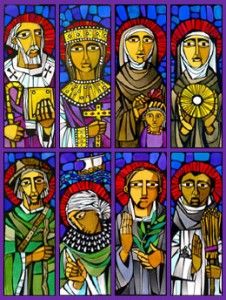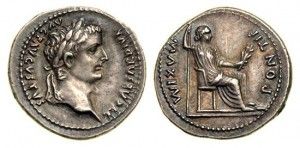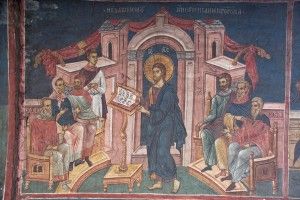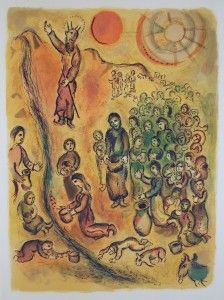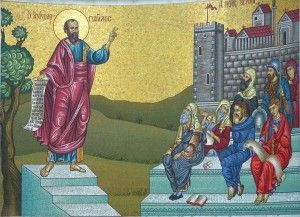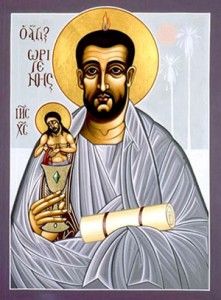
Matthew 22:34-40
In this passage, we reach the culmination of Jesus’ long series of confrontations in Jerusalem that we have been reading in the gospel of Matthew. One last question is addressed to Jesus, one final attempt to test him: “Teacher, which commandment in the law is the greatest?”
Jesus replies with words I hope are familiar to you: You shall love the Lord your God with all your heart, and with all your soul, and with all your mind. This is the greatest and first commandment. And a second is like it: You shall love your neighbor as yourself. On these two commandments hang all the law and the prophets.
Unlike so many of the exchanges that led up to it, this one is straightforward: a clear question and a clear answer. If the questioner was testing Jesus on his knowledge of scripture, Jesus has aced the test: his answer echoes passages found in the books of Deuteronomy and Leviticus. If this lawyer is testing Jesus on his theological orthodoxy, he also has the right answer: Jesus is echoing the opinion of other major Jewish leaders of the day; the famous Rabbi Akiva, known in the Talmud as “head of all the sages” also lifted up this passage of Leviticus as the most important scripture.
So if you never memorize another bible verse, memorize this one. It’s saying something if Jesus, the Pharisees, and Rabbi Akiva all agreed about it. These words have become building blocks of our tradition: something to return to whenever things get confusing. When in doubt about what Jesus was really trying to do, or when someone asks what Jesus was all about, come back here: You shall love the Lord your God with all your heart, and with all your soul, and with all your mind. You shall love your neighbor as yourself.
Like all simple statements, however, this scripture demands some unpacking. In particular, what kind of love are we talking about? In English, the word “love” is used for a shockingly large range of emotions and actions. It describes feelings of friendship and passion and long-term companionship, and even our feelings about chocolate and fashion and sports. What kind of love was Jesus talking about, when he told us to love God with all that we are, and our neighbor as ourselves?
The original languages of the bible are a bit more specific than English when it comes to the concept of love. Both Hebrew and Greek have a particular word for the love of friends: re’ut, and philia. They both have a particular word for passionate love: ahavah, and eros. And there is a third word in each language that is perhaps harder to precisely explain; these are the ones that are used in relationship with God: Chesed, and Agape. Chesed, the Hebrew, is translated as loving kindness, covenant love, grace, compassion, or mercy. Agape, the Greek, is translated as generous or disinterested love; the love found between family members; a selfless love.
The most important point here is not to nail down an exact translation: we can leave that to the poets. But going back to Hebrew and Greek helps us to understand what kind of love Jesus might have been talking about. It wasn’t a love that’s all about what we feel on any given day, or who we are drawn to. It’s a love more similar to the love we offer to family members, and fellow church-goers, and neighbors. It’s love as joyfully performed service. It’s love as generosity and devotion, not necessarily out of inspiration, but following through on an intention we have of living in a particular kind of way.
Now there are people in the world, I think, who are passionately in love with God all their lives; mystics, we sometimes call them. But many of us experience that kind of emotionally charged love only in special moments; or not at all. Apparently, that kind of feeling is not really necessary for faith, or for faithful living. We need not always be swept up in love for God — or our neighbor — or ourselves. Following Jesus’ instructions means acting with compassion and mercy anyway: towards God and God’s creation; towards our neighbors, near and far; towards ourselves.
God, sometimes we fall out of love. We can’t seem to get close to you, or understand your ways. Our friends, family, and humankind disappoint and disillusion us. We even, especially, dislike ourselves. Help us to remember to open our hearts to the kind of love you are always offering: scceptance; forgiveness; generosity; hope; kindness; constancy; service. May your love inspire and renew us so that we may offer this kind of love to you, to others, and to ourselves. Amen.
